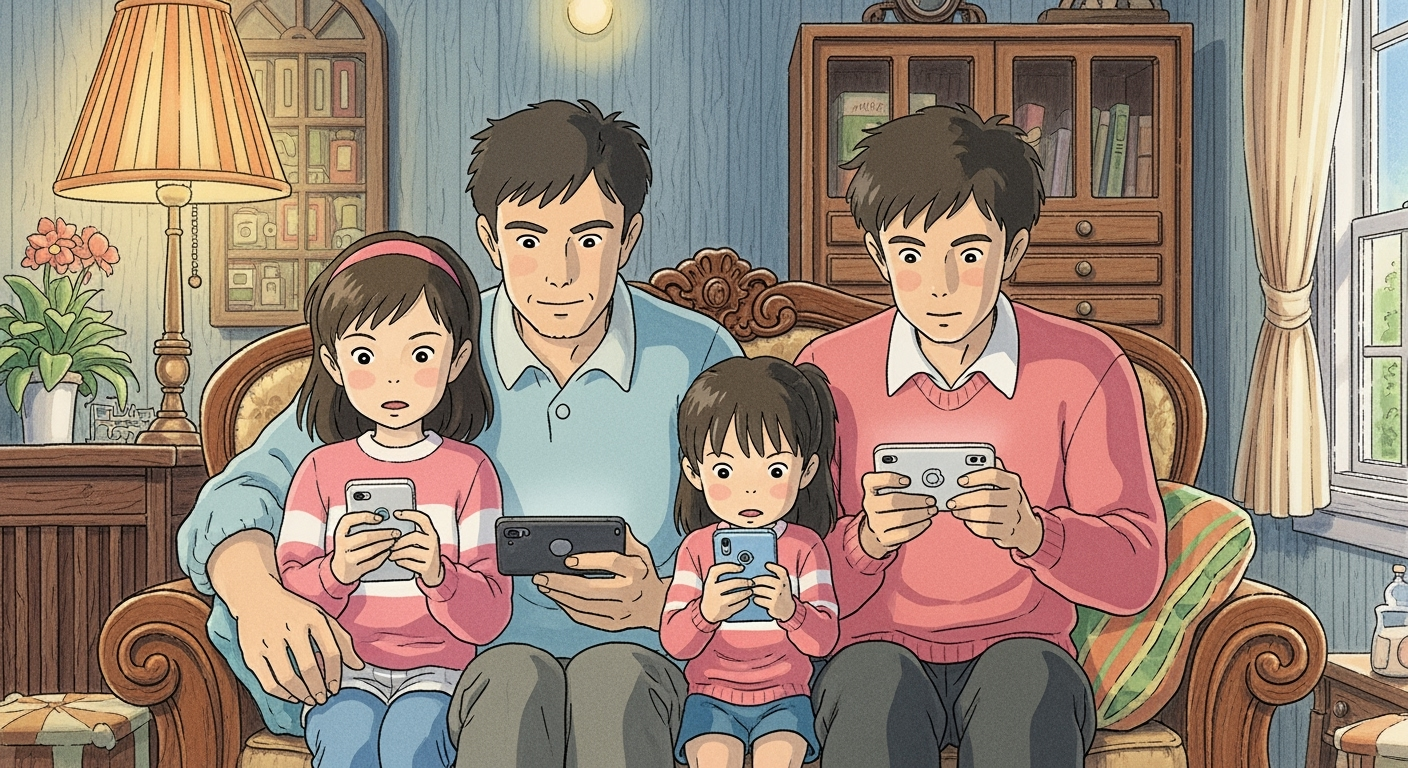Digital Childhood: The Hidden Cost of Growing Up Online
In an era where digital connectivity defines our daily interactions, the influence of social media on child development has emerged as one of the most pressing concerns of our time. As children increasingly navigate their formative years through the lens of social platforms, we are witnessing unprecedented changes in their psychological, social, and physical development patterns.
Mind Games: The Psychological Battlefield
The psychological impact of social media on young minds has proven particularly devastating. Recent studies indicate that children spending more than three hours daily on social platforms experience significantly higher rates of anxiety and depression. The constant pursuit of 'likes' and virtual approval has created a generation tethered to their screens, seeking validation through carefully curated online personas. This digital dependency has manifested in concerning ways, with many young people reporting feelings of inadequacy, isolation, and intense pressure to maintain perfect online appearances.
When Algorithms Attack: The Molly Russell Warning
Perhaps most troubling is the case of Molly Russell, whose tragic story illuminates the darker corners of social media's influence. The 14-year-old British teenager's death in 2017 led to groundbreaking investigations that revealed how platform algorithms can systematically expose vulnerable young users to harmful content. This case not only highlighted the potential dangers lurking within social media but also sparked crucial conversations about platform accountability and child safety online.
Lost in Translation: The Death of Face-to-Face Connection
The erosion of fundamental social skills presents another significant concern. As children increasingly prefer digital communication over face-to-face interactions, we observe a marked decline in their ability to interpret non-verbal cues, maintain eye contact, and develop genuine empathy. Research from University College London suggests that extensive social media use correlates with a 40% reduction in emotional intelligence and social awareness. These findings paint a concerning picture of a generation potentially ill-equipped for real-world social interactions.
Screen Time vs. Green Time: The Physical Toll
Physical wellbeing has not escaped the far-reaching effects of social media consumption. The sedentary nature of scrolling through feeds has contributed to a dramatic decrease in physical activity, with children spending an average of 60 fewer minutes daily on active pursuits compared to pre-social media generations. Sleep patterns, crucial for healthy development, have been significantly disrupted. The blue light emission from devices, coupled with the addictive nature of social platforms, has led to 68% of teenagers regularly checking their accounts during night hours, compromising both sleep quality and academic performance.
Rewired: How Social Media is Reshaping Young Brains
The neurological impact of constant social media engagement raises serious concerns about cognitive development. The rapid-fire nature of content consumption has been linked to shortened attention spans and decreased capacity for deep, critical thinking. Children's brains, still in crucial developmental stages, are being rewired to expect instant gratification and constant stimulation, potentially compromising their ability to engage with more complex, nuanced forms of learning and problem-solving.
Digital Bullies: When There's No Escape
The challenge of cyberbullying adds another layer of complexity to this issue. Unlike traditional playground bullying, which ends when a child returns home, cyberbullying follows victims everywhere through their devices. Statistics show an 87% increase in reported cases since 2017, with many incidents involving multiple perpetrators and lasting psychological impact. The anonymous nature of many platforms has created an environment where cruelty can flourish unchecked, leaving young victims feeling helpless and isolated.
Hope in the Digital Age: Finding Balance
However, amidst these concerning trends, there is hope for positive change. Progressive schools are implementing digital literacy programmes, teaching children to navigate online spaces safely and critically. Parents are becoming more aware of the need for balanced screen time and open dialogue about online experiences. Platform developers, under increasing pressure from society and legislators, are beginning to incorporate more robust safety features and age-appropriate content filters.
Building Digital Resilience: The Way Forward
The path forward requires a delicate balance between embracing the benefits of digital connectivity while protecting children's fundamental developmental needs. This means implementing stronger age verification systems, creating mandatory safety features for young users, and regularly monitoring mental health in educational settings. It also calls for a societal shift in how we view and value real-world connections versus digital interactions.
Tomorrow's Generation: A Call to Action
As we continue to understand the full scope of social media's impact on child development, one thing becomes clear: we cannot allow the digital world to compromise the essential experiences that shape healthy, well-adjusted individuals. The solution lies not in completely disconnecting children from social media but in fostering a more mindful, balanced approach to its use. This requires collective effort from parents, educators, platform developers, and policymakers to create digital environments that support rather than hinder healthy child development.



